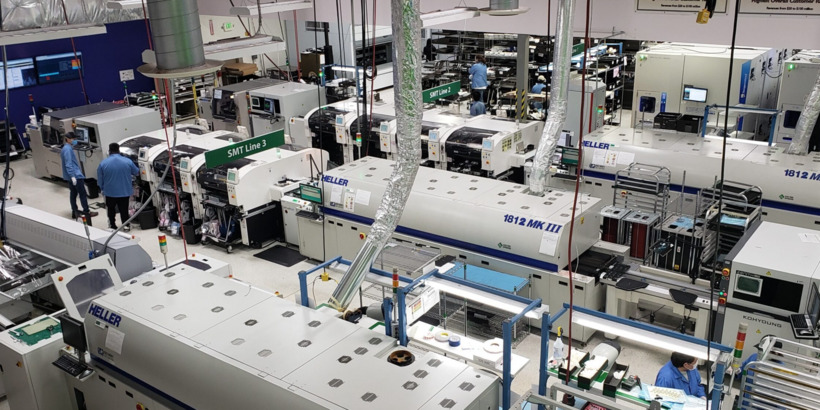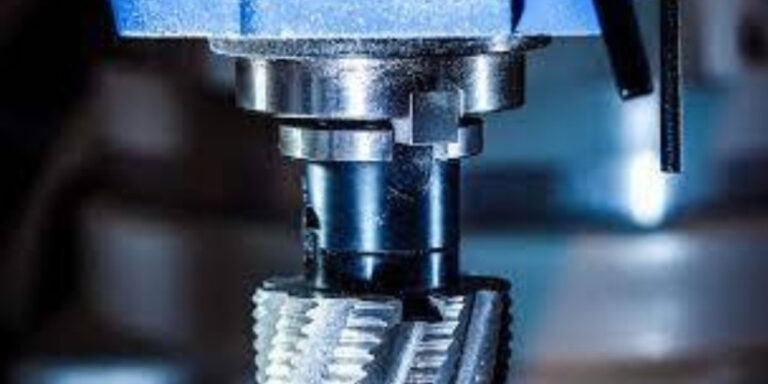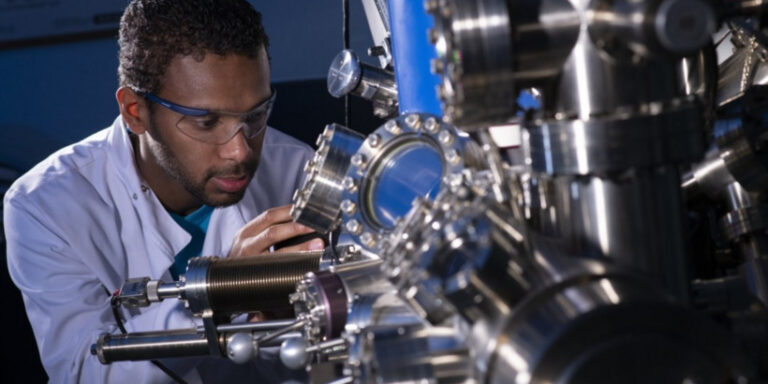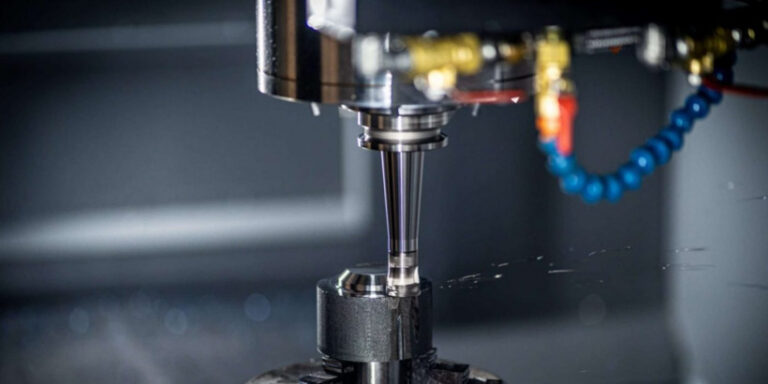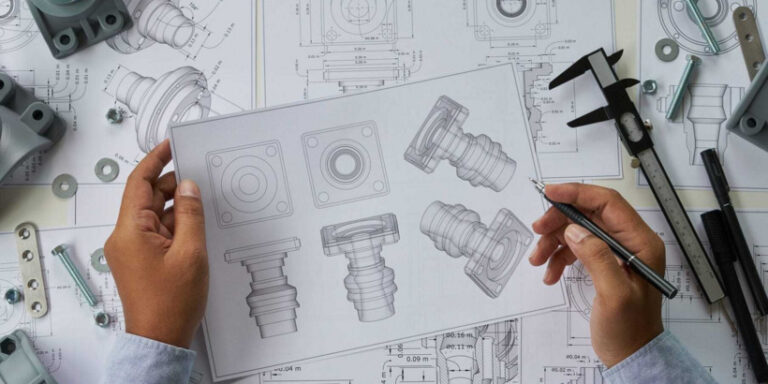The Role Of Mechanical Engineers In The Development Of New Energy Storage Technologies
As we shift towards cleaner and more sustainable energy sources, the development of new energy storage technologies becomes increasingly important. Mechanical engineers play a crucial role in this process, as they are responsible for designing, developing, and testing these innovative solutions.
From electric vehicles to grid-scale batteries, mechanical engineers are at the forefront of creating practical and efficient ways to store renewable energy. Their expertise in materials science, thermodynamics, and mechanics allows them to design systems that can withstand extreme temperatures and pressures while maintaining optimal performance.
Without their contributions, progress towards a greener future would be significantly hindered. In this article, we will explore the critical role that mechanical engineers play in advancing energy storage technologies and how their work is shaping our world’s transition to sustainability.
Understanding Renewable Energy Sources
Imagine a world where our energy needs are met without harming the environment.
A world where we do not have to worry about reducing emissions or our carbon footprint because we have found sustainable solutions that meet our needs.
This is the kind of future that renewable energy sources offer us, and as mechanical engineers, we play an integral role in making this a reality.
Our expertise is critical in developing new technologies that can harness the power of nature while minimizing harm to the planet.
In this first section, we will explore the importance of understanding renewable energy sources and how it shapes our work as mechanical engineers tirelessly working towards creating a better tomorrow for all.
Designing Efficient Storage Solutions
I’m really interested in the role mechanical engineers play in developing new energy storage technologies. Let’s talk about optimizing battery capacity and evaluating battery chemistry to figure out the best storage solutions.
Optimizing Battery Capacity
As a mechanical engineer interested in designing efficient storage solutions, I believe that optimizing battery capacity is crucial to achieving this goal.
With more renewable energy sources being integrated into the grid, it’s essential to have reliable and cost-effective methods of storing excess energy for later use.
By improving battery capacity, we can ensure that these technologies are able to meet our energy needs even during times when solar or wind power may not be available.
Additionally, as electric vehicle adoption continues to grow, ensuring that batteries have sufficient capacity is critical for expanding charging infrastructure and making EVs a viable option for all drivers.
Overall, prioritizing battery optimization will help us move towards a cleaner and more sustainable future.
Evaluating Battery Chemistry
So, as a mechanical engineer who’s passionate about designing efficient storage solutions, I believe that evaluating battery chemistry is another crucial aspect of achieving this goal.
By carefully analyzing the chemical composition of batteries, we can identify ways to reduce costs while at the same time increasing their capacity. This will not only make energy storage more accessible but also pave the way for newer and better technologies in the future.
In fact, by studying different types of battery chemistries such as lithium-ion or solid-state batteries, we can determine which ones are best suited for specific applications like EVs or grid-scale energy storage systems.
Therefore, it’s essential that we continue to evaluate battery chemistry and push forward with advancements in technology to help us move towards a cleaner and sustainable future.
Applying Materials Science To Energy Systems
When it comes to developing new energy storage technologies, mechanical engineers play an important role in applying materials science to energy systems. By incorporating advanced materials and battery chemistry into their designs, they can create more efficient and effective energy storage solutions.
For example, the use of graphene or nanotubes as electrodes in batteries can increase their capacity and lifespan. Additionally, by understanding how different materials interact with each other and with electrical currents, mechanical engineers can optimize the performance of these systems.
With advancements in materials science constantly evolving, there is always room for innovation in the field of energy storage technology. By staying up-to-date on the latest research and developments, mechanical engineers can continue to push boundaries and drive progress towards a more sustainable future.
Utilizing Thermodynamics And Mechanics
I’m really interested in the role of mechanical engineers in developing new energy storage technologies. I think thermodynamic principles are the key to unlocking the potential of these technologies, so understanding how they work is essential. And I’m curious to know how mechanical design plays a part in creating energy storage solutions that are both efficient and safe.
Thermodynamic Principles
When it comes to utilizing thermodynamics and mechanics, one important subtopic that mechanical engineers must consider is the application of thermodynamic principles.
Heat transfer and fluid dynamics are key concepts in this area, as they relate to how energy can be stored and transferred through various mediums.
For example, understanding how heat flows through different materials or fluids can help engineers design more efficient energy storage systems that minimize heat loss.
Additionally, knowledge of fluid dynamics can aid in the development of advanced cooling solutions for these systems.
By applying these principles in their work, mechanical engineers play a crucial role in advancing new energy storage technologies that can power our world sustainably without compromising performance or efficiency.
Mechanical Design
So, we’ve talked about how mechanical engineers can apply thermodynamic principles to develop more efficient energy storage systems. But another critical aspect of their work is the design process itself.
Mechanical design involves creating physical components and systems that meet specific performance requirements while also considering factors like cost, manufacturability, and durability. To facilitate this process, many engineers use enabling automation tools such as computer-aided design (CAD) software or 3D printing technologies that can quickly generate prototypes for testing and validation.
Additionally, dynamic modeling techniques allow engineers to simulate the behavior of complex systems before actually building them, helping to identify potential problems early on in the development cycle. By leveraging these approaches along with their expertise in thermodynamics and mechanics, mechanical engineers are driving innovation across a wide range of industries from aerospace and automotive to medical devices and renewable energy.
Energy Storage Technologies
Now let’s delve deeper into the topic of energy storage technologies and see how mechanical engineers are utilizing thermodynamics and mechanics to develop more efficient systems.
As we discussed earlier, one of the primary goals of this field is grid optimization, which requires effective energy management strategies. To achieve this, engineers need to design energy storage systems that can store excess electricity generated during off-peak hours for use during periods of high demand.
This process involves not only considering thermodynamic principles but also understanding the mechanical limitations of different materials and components used in these systems.
Therefore, by applying their expertise in both fields, mechanical engineers are playing a crucial role in advancing sustainable energy solutions for our rapidly changing world.
Testing And Optimizing Technologies
Did you know that testing and optimizing technologies is a crucial part of the development process, with up to 80% of project time spent in this phase? As mechanical engineers, we play an essential role in exploring applications for new energy storage technologies while assessing costs.
Here are four ways we contribute to this phase:
- Conducting performance tests to ensure safety and efficiency
- Analyzing data collected during testing to identify areas for improvement
- Collaborating with other professionals like chemists and physicists to optimize designs
- Using simulations and modeling software to predict behavior under different conditions
Through these tasks, we can determine how well a technology performs in various situations, such as extreme temperatures or high vibration environments. We also take into account factors like manufacturing costs and scalability when evaluating potential solutions for commercial use.
Our ultimate goal is to create sustainable energy systems that meet the needs of society while minimizing environmental impact. By constantly iterating on our designs through rigorous testing, we can help make this vision a reality.
The Need For Innovative Solutions
I’m really interested in the role that mechanical engineers can play in the development of new energy storage technologies. Innovative materials can help to make energy storage more efficient and cost effective, so it’s important that mechanical engineers are looking at new ways to design and construct these materials. Improved efficiency is a key factor when it comes to making energy storage solutions viable, and mechanical engineers have the skills to help find solutions that increase the efficiency of energy storage. Cost reduction is also essential for making energy storage more accessible, and mechanical engineers have the expertise to create innovative solutions that reduce costs and make energy storage more affordable.
Innovative Materials
When it comes to the need for innovative solutions in energy storage technologies, one of the key areas where mechanical engineers can make a significant impact is through the use of innovative materials.
As an engineer myself, I have seen firsthand how compact designs and efficient heat management are critical components of any successful energy storage system. By identifying new materials that offer superior performance characteristics such as higher energy density or faster charging times, we can help create more effective and reliable energy storage solutions that will be essential for meeting the growing demands of our modern world.
Ultimately, by continuing to explore new material options and pushing the boundaries of what is possible in this field, mechanical engineers will play a crucial role in shaping the future of renewable energy sources.
Improved Efficiency
As a mechanical engineer, I am always exploring trends and analyzing costs to find innovative solutions that can improve the efficiency of energy storage systems.
Improved efficiency is crucial for making renewable energy sources more accessible and cost-effective for everyone.
By using advanced technologies like machine learning algorithms or optimizing thermal management techniques, we can make significant improvements in the overall performance of these systems.
As such, it’s essential for us as engineers to continue pushing the boundaries of what is possible in terms of improving efficiency so that we can create more sustainable energy solutions for our future needs.
Cost Reduction
As a mechanical engineer, I am always looking for innovative solutions to improve the efficiency of energy storage systems.
In addition to improved efficiency, cost reduction is also essential in making renewable energy sources more accessible and affordable for everyone.
One way we can achieve this is through scaling applications and data analysis.
By analyzing large amounts of data, we can identify areas where costs can be reduced without sacrificing performance or quality.
For instance, optimizing manufacturing processes or sourcing materials from cheaper suppliers are some ways that have proven effective in reducing costs.
As engineers, it’s our responsibility to find new and creative ways to make sustainable energy solutions more economical so that they become widely adopted by society.
The Impact Of Mechanical Engineers On The Future
As a mechanical engineer, I am excited about the impact we can have on shaping the future through our work in developing new energy storage technologies.
Our expertise in materials science, thermodynamics and mechanics allows us to explore economics of these technologies while examining policies that could help bring them to market.
By working with interdisciplinary teams, we are able to create innovative solutions for more efficient and sustainable energy storage systems.
As we continue to push boundaries and develop new technology, it is clear that mechanical engineers will play an increasingly important role in shaping our world’s energy landscape.
Conclusion
As a mechanical engineer, it is truly exciting to see the progress being made in the development of new energy storage technologies. The future holds endless possibilities for renewable energy sources and we play an integral role in making them viable solutions.
We are like conductors leading the charge towards a more sustainable future. Our skills and expertise allow us to design efficient storage solutions that can harness the power of wind, solar, and hydroelectricity. We apply materials science to create systems that can withstand extreme weather conditions while optimizing performance levels.
Just as a puzzle requires each piece to fit perfectly together, we test and optimize our technologies until they work seamlessly with one another.
It is this collaborative effort between scientists, engineers, and researchers that will ultimately lead us towards cleaner energy alternatives. And by doing so, we become agents of change who hold the key to unlocking a brighter future for generations to come.
